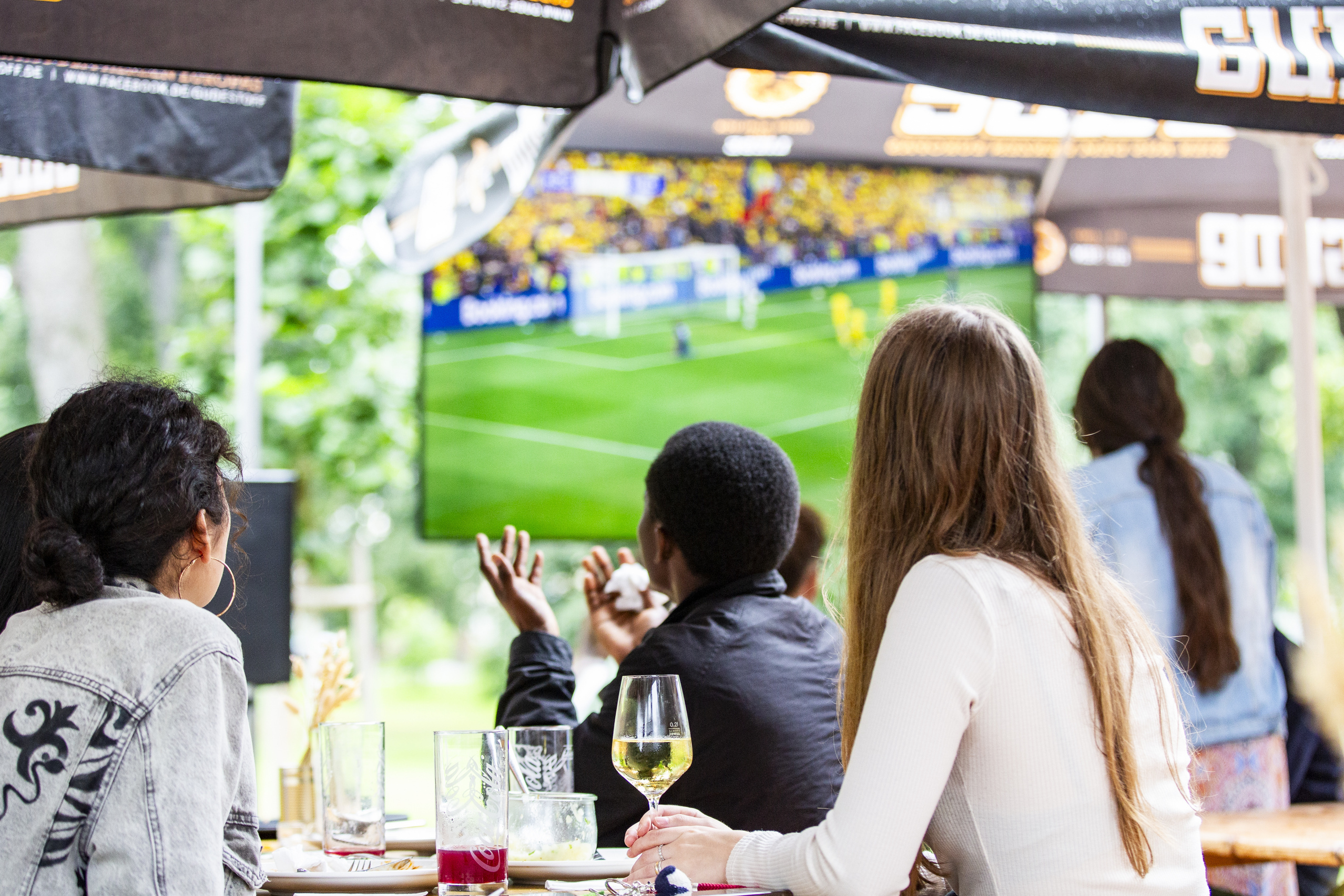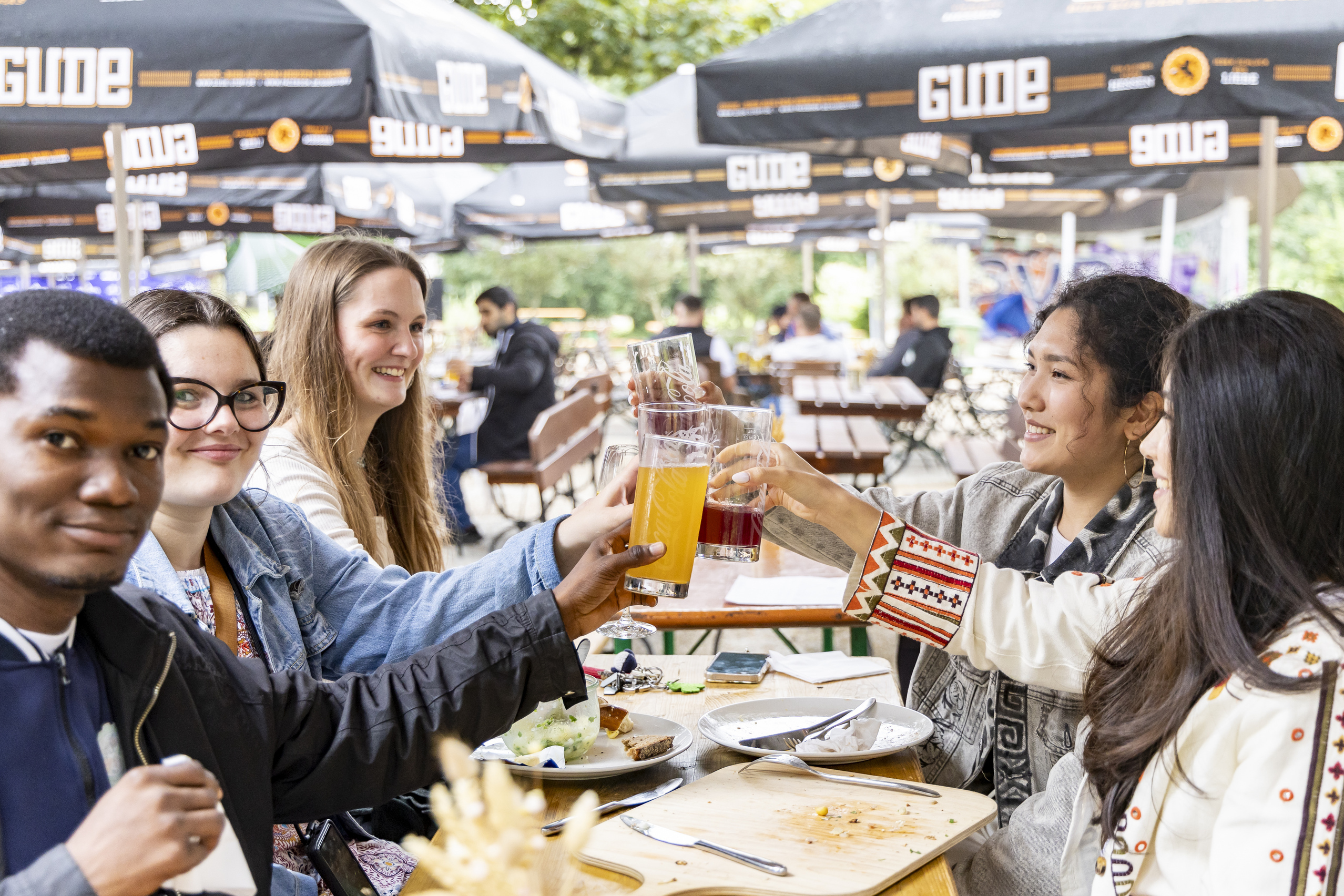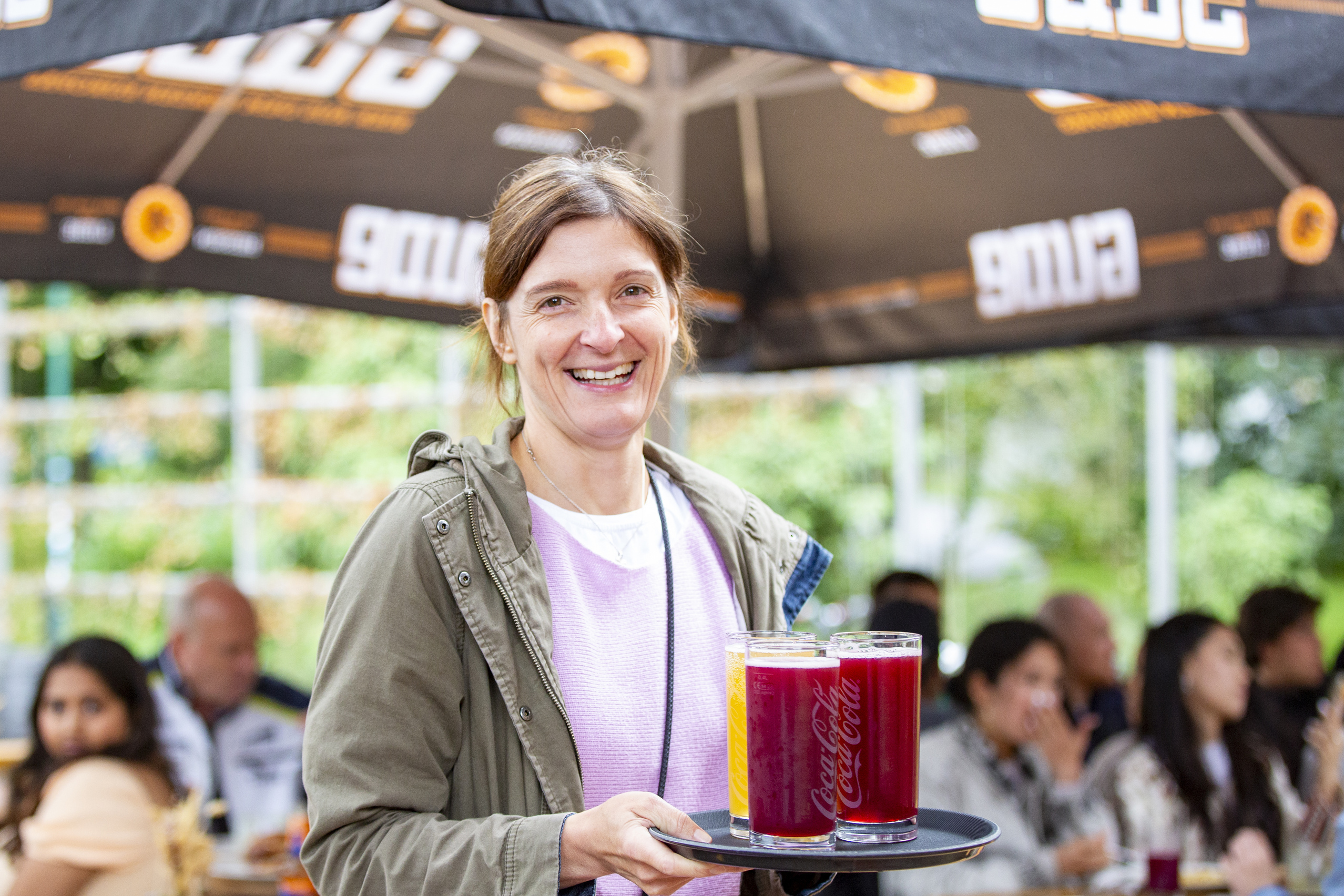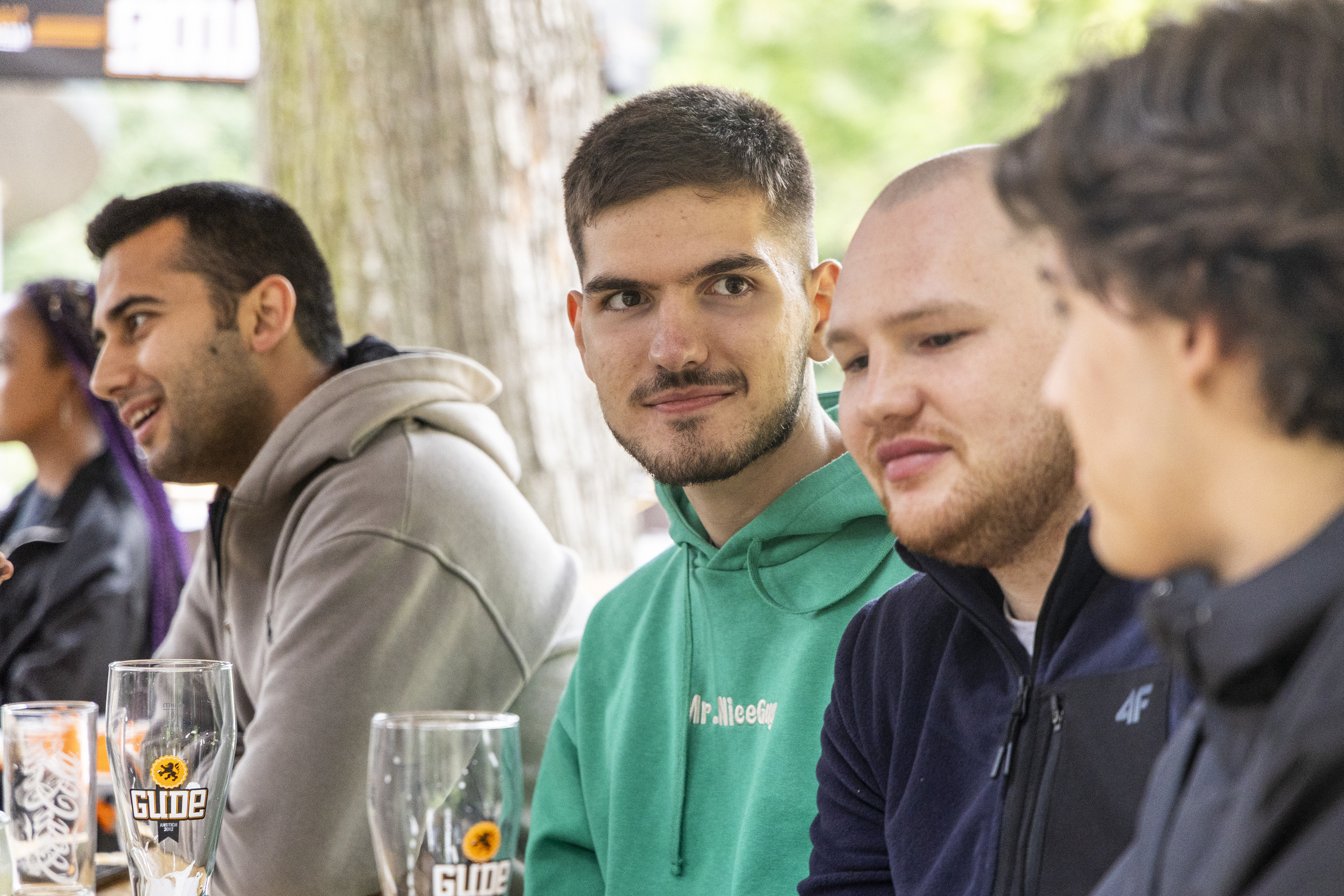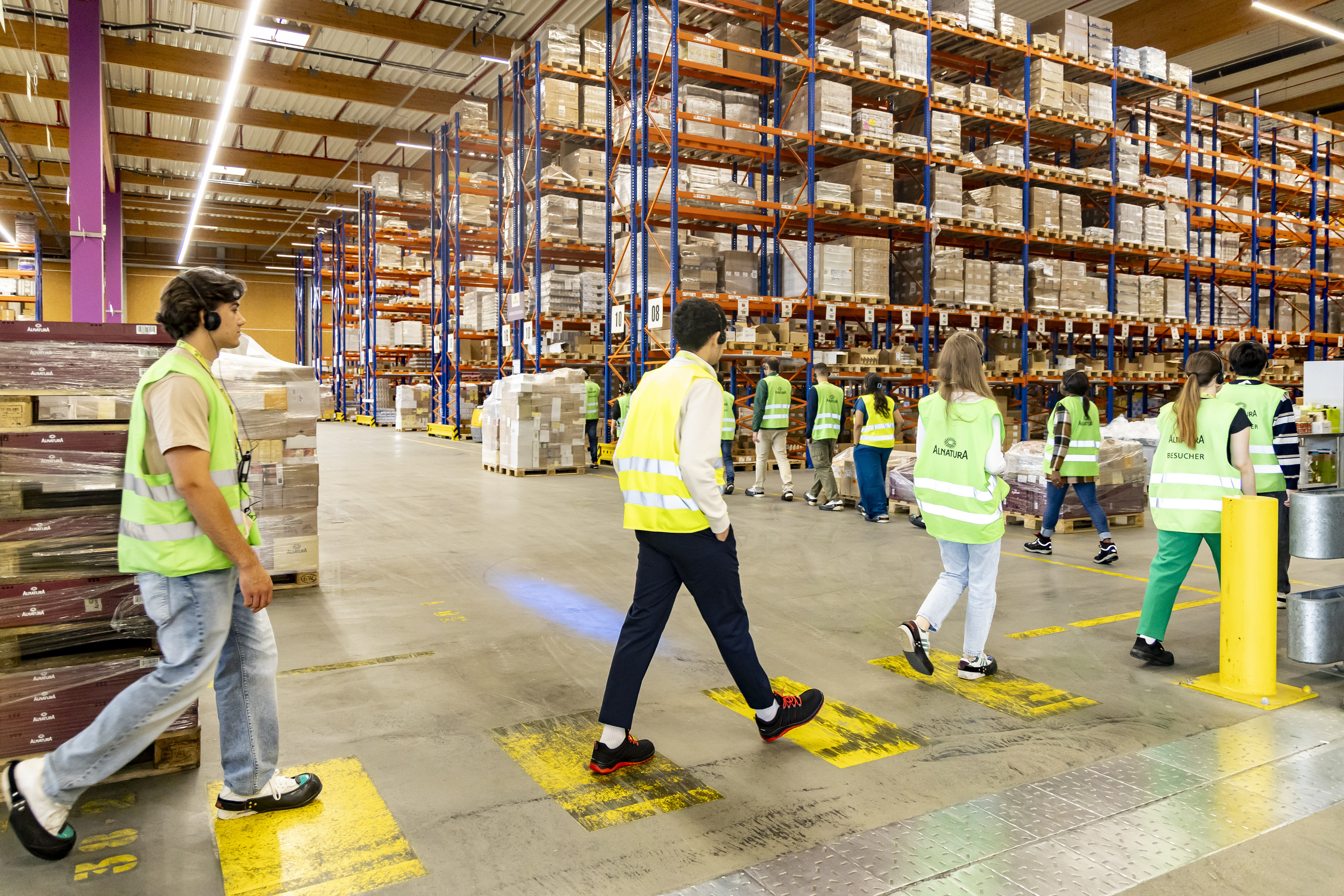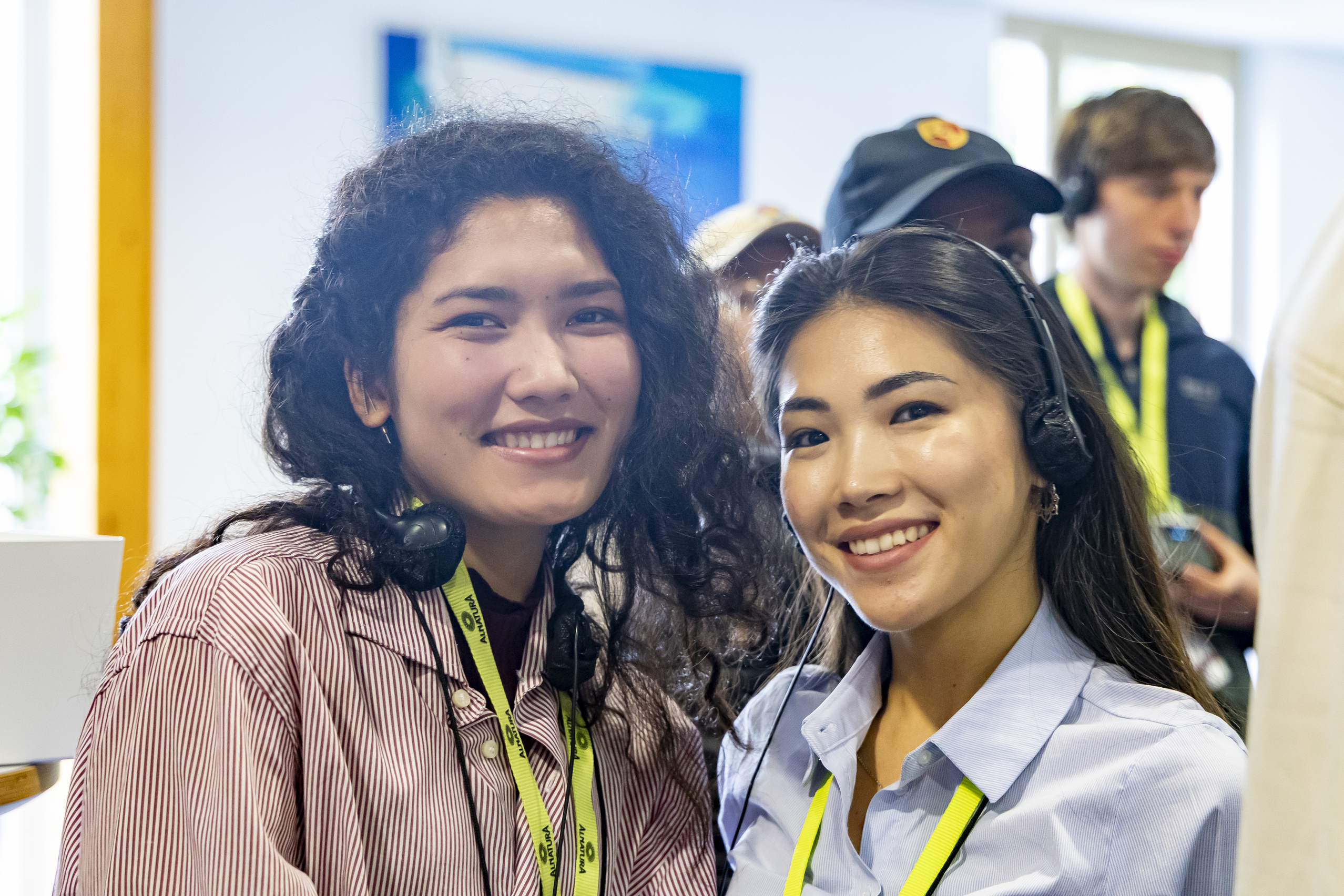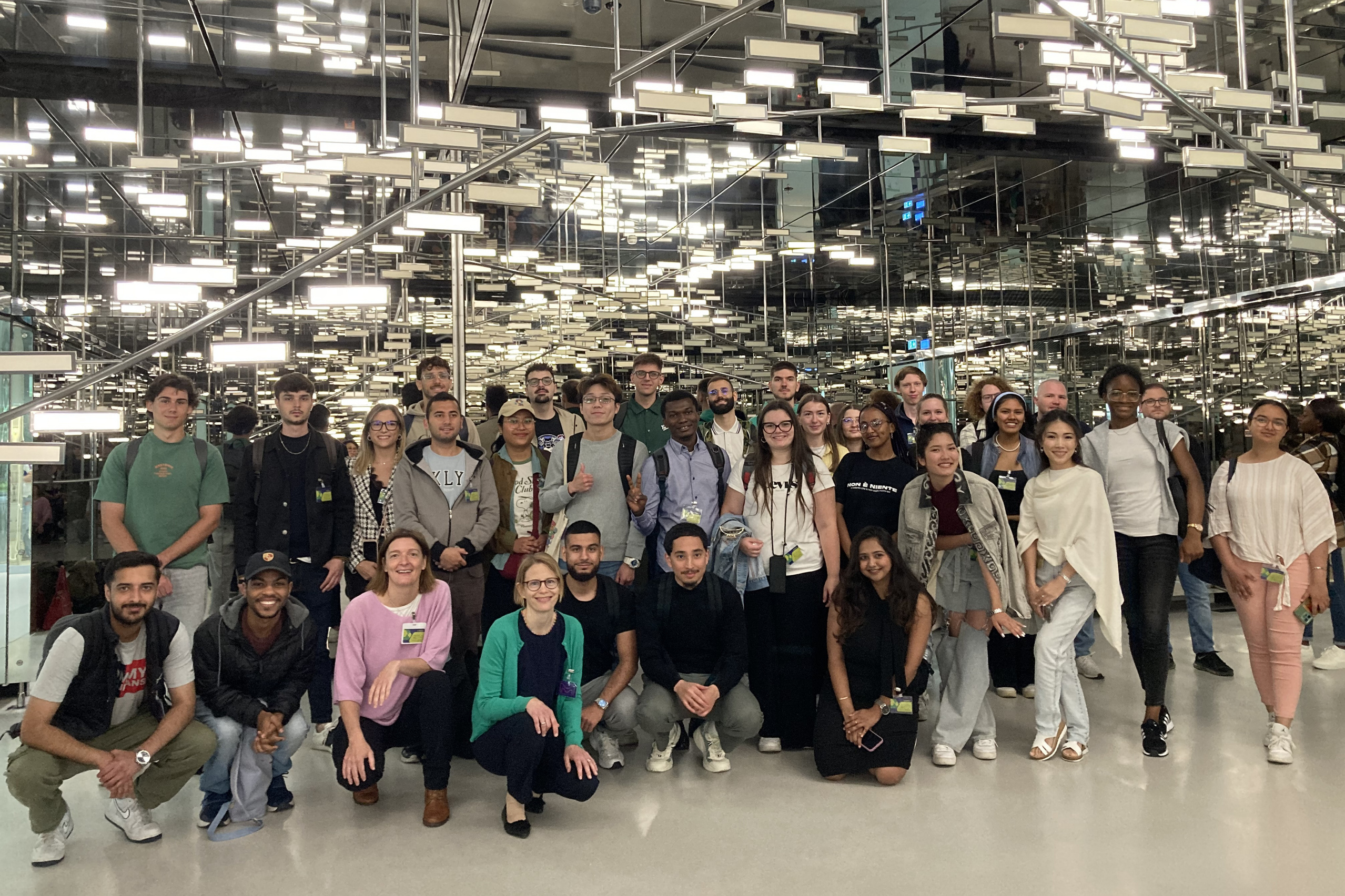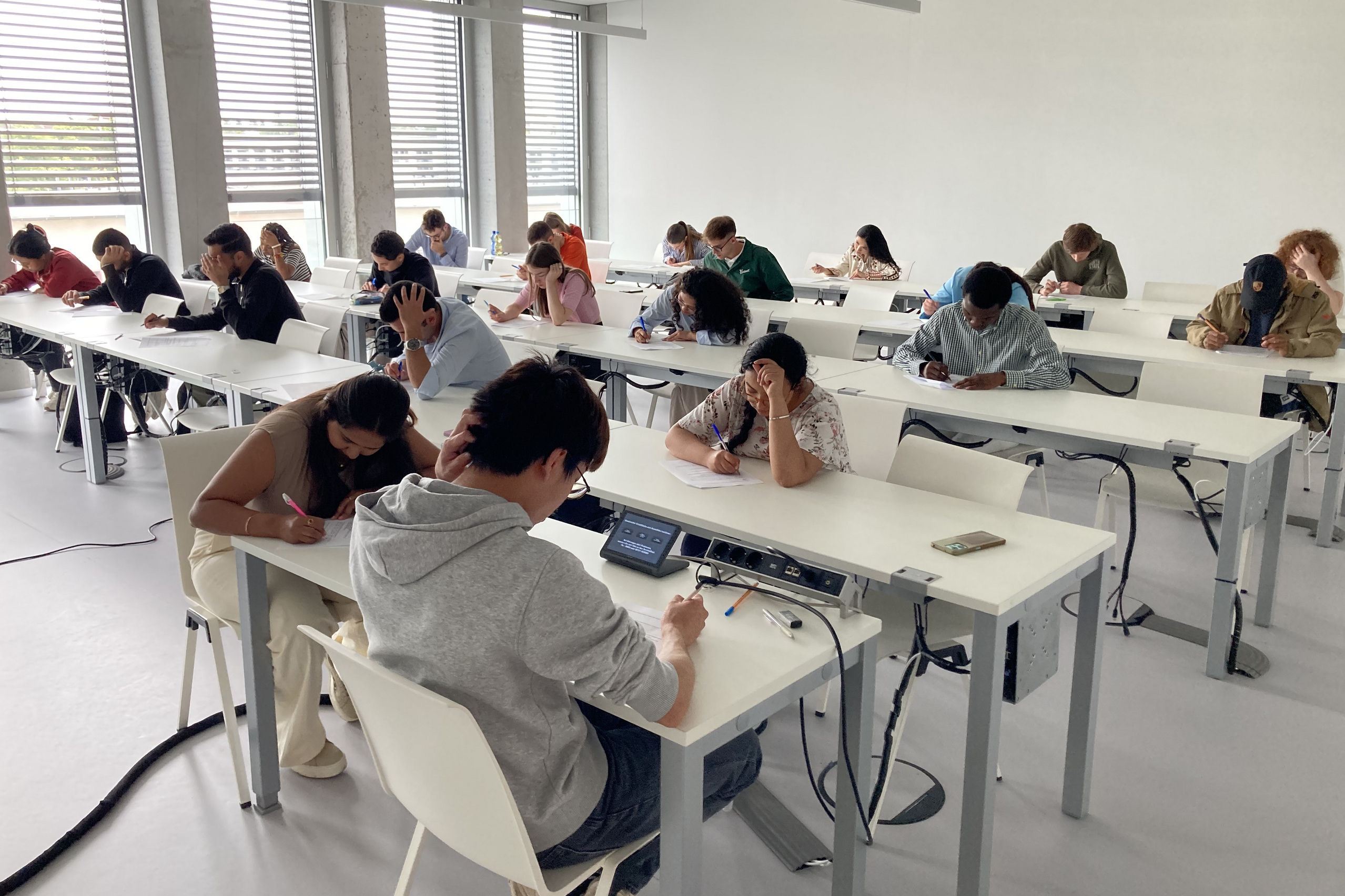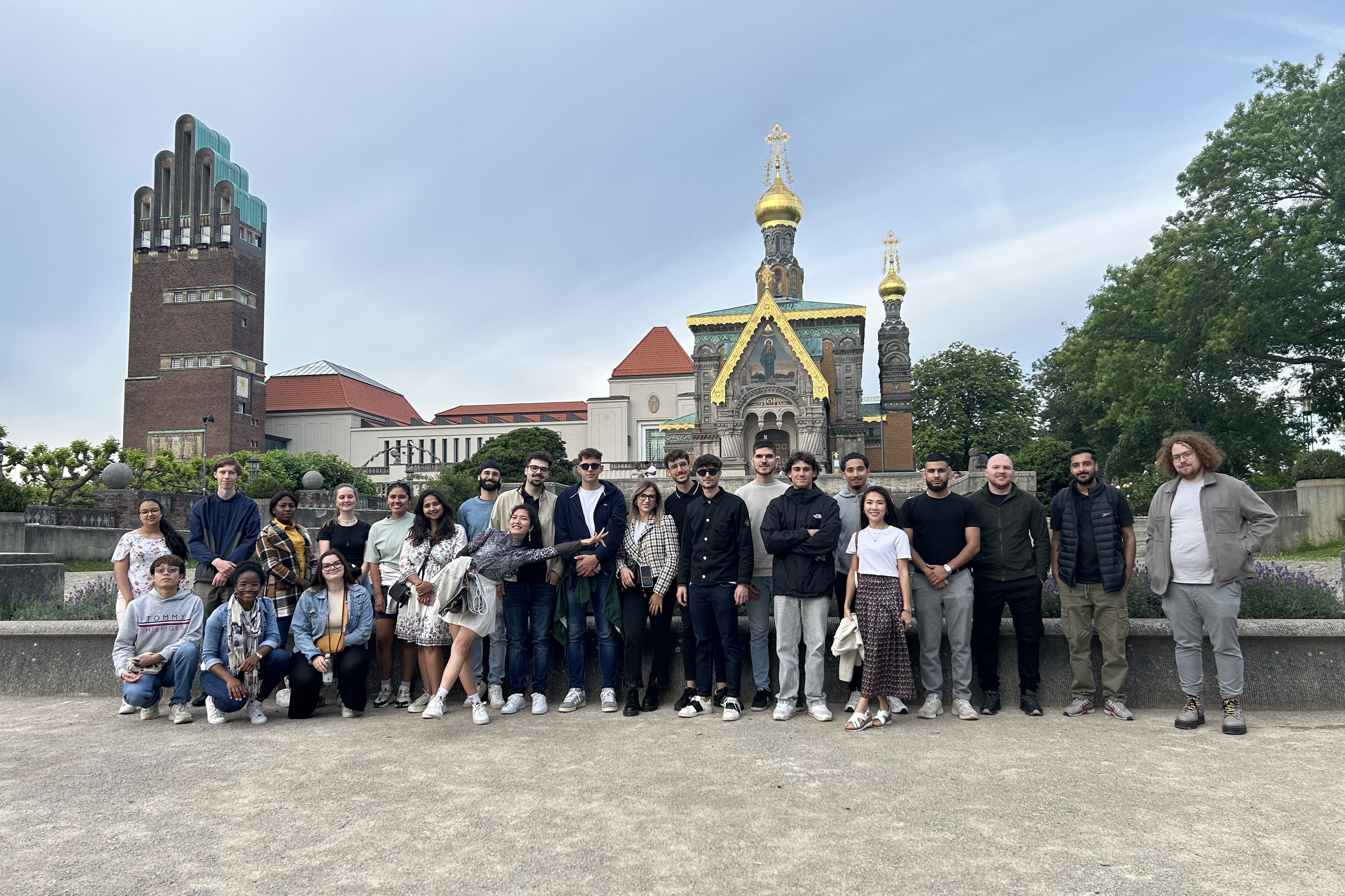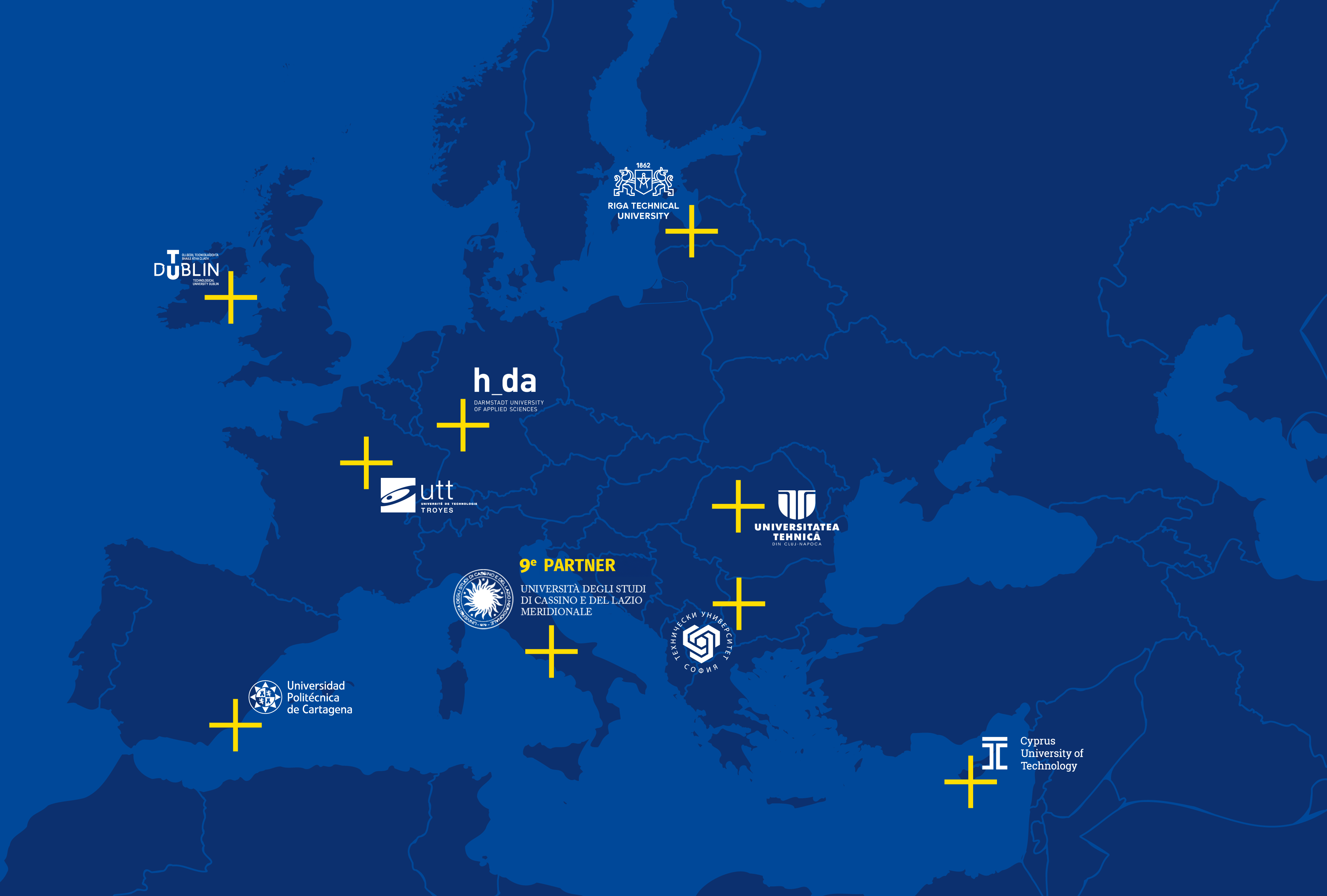Logistics and Sustainability

How can we make supply chains more sustainable? This is what 30 students from Italy, France, Bulgaria and Darmstadt have tackled in a Blended Intensive Programme as part of the European University Initiative EUT+. Under the guidance of two h_da logistics professors, the participants first worked together online for a semester and have now reached the finals at the end of an intensive week in Darmstadt. They have not only made progress in logistics but also enhanced their English language skills.
By Alexandra Welsch, 9.7.2024
Summer is showing its gloomier side. It is drizzling mercilessly from a grey and cloudy sky, and the temperature is only a chilly 16 degrees. Whether trees, bushes, benches or sun umbrellas – everything is dripping wet. At first glance, the café in Darmstadt’s central park is not exactly buzzing either. If the weather was nice, all the tables would be occupied with fans watching the European Championship. Today, it is almost empty. But at the very edge, a group of 30 young people has sat down between flickering TV screens and seems quite upbeat.
“In my opinion, the fundamental approach is really good,” says Professor Futschik, Department Coordinator at her faculty, explaining her reasons for actively engaging in the alliance. “A European university with different campuses is such a brilliant idea!” And it is precisely because of the alliance’s European location that the topic of sustainable logistics also lends itself due to current events: since January 2023, it has been mandatory for all companies across the EU with over 250 employees to submit a greenhouse gas balance. “And in our BIP project, students learn how to calculate CO2 emissions for logistics processes.”
How sustainably can goods be delivered to China?
Most of the programme took place via online sessions over the course of the summer semester. First, the two German professors and their colleague Murat Afsar from the Université de technologie de Troyes in France taught the students the necessary subject knowledge. The students then dealt in mixed groups with supply chains across several countries. This took the shape of concrete case studies, using, by way of example, a gear manufacturing company in Darmstadt that produces parts for an industrial customer in China. Focusing on CO2 emissions, the students adjusted various parameters, such as modes of transport, types of drive, and different routes.
“To do this, we use software developed by our partner company AEP Solutions here in Darmstadt for calculating the carbon footprint,” explains Monika Futschik. “By combining manual calculations of greenhouse gas emissions and the use of the simulation software, the students were quickly able to simulate a variety of solutions for different scenarios,” adds her colleague Johanna Bucerius. At the end of the intensive week in Darmstadt, each group presented calculations for two supply chains and suggestions on how to optimise them in terms of sustainability.
EUT+ image video
Discover EUT+ European University of Technology
In the rain-soaked beer garden, however, logistics professor Futschik is meanwhile more concerned with the supply chain for food and drinks. The students have written their orders on a piece of paper, and these are arriving at the counter one after the other. The professor – “Your food is ready” – also lends a hand to carry plates to tables. Hungry, the next generation of European logistics experts tuck into schnitzel with chips, cheese with chopped onion, or goulash with spaetzle, paying little attention to the UEFA match taking place at the same time between the Netherlands and Romania.
Impressed by Merck and German “order”
Such a shame that Italy was eliminated. Vanessa, who watched her team’s defeat in the European Championship on TV here in Darmstadt two days earlier, is still a little bit upset about that. “I was so embarrassed,” says the bubbly Italian. But that does not detract from her enjoyment of Darmstadt Week. “Everything here is so structured and well organised,” she says, and she is not alone in her praise. “There is a lot of expertise in supply chain management here at h_da,” interjects her fellow student Zhuldyz Gabbassova. They were also impressed by their visit to Merck, the chemical multinational in Darmstadt, and their meeting with Kristin Balk, the company’s Senior Sustainability Programme Manager. “They think big, that’s very impressive,” says Aisaltan. “The company was like a city,” says Vanessa, also impressed. “And everything is so methodical.”
They also notice this the next day during a tour of the distribution centre of an organic food retailer, Alnatura in Lorsch. Wearing green safety vests and protective shoes over their own, the EUT+ students follow the yellow lines on the floor through the huge warehouse in an orderly fashion – like a small ant trail. It is slightly reminiscent of Abbey Road as the line of visitors march over the zebra crossings in single file. And at the latest when they come to a stop does a look of amazement spread across their faces. Especially in the high-bay warehouse. The towering shelves with spaces for 32,000 food pallets are 20 metres high. Stacker cranes and robot arms lift them fully automatically and transport them to goods dispatch via conveyors.
It also becomes clear just how sustainable it is. “This is the largest warehouse in Europe made of wood,” says Judith Büttner, Technical Assistant to the Head of Supply Chain Management. It requires neither heating nor cooling because the building is set 250 centimetres deep into the ground and makes use of natural cooling effects. “That saves a lot of energy.” And this applies for everything including goods dispatch, where the conveyors slope towards the floor, allowing the pallets to roll down without needing electricity.
“Sustainability is the future”
“Sustainability is the future,” says Petar Stoev from the Bulgarian partner university, putting it in a nutshell at the end of the tour. And in the next breath he explains why he, as an IT management student, is taking part in the Blended Intensive Programme and visiting Germany for the first time: he would like to set up his own software company one day and was able to take away many impressions and ideas from practice – also with regard to sustainability, which has long been an important market factor.
Benguagu Khaoula from UTT in Troyes, France, also praises the pronounced practical relevance: “Our degree programme is very theoretical, and here we can see with our own eyes how this theory is put into practice and understand our subject better.” What is particularly great, she adds, is that there are four field trips to companies during the intensive week alone, including BASF at the end. The BIP is also attractive for her, she says, because of the manageable amount of time and money required over just one semester with online courses and a one-week trip. “That makes it easier for me to take part.”
The h_da students also greatly benefited from the BIP. “Sustainability is an important topic, but it doesn’t crop up much in foundation studies,” says logistics student Lea Tabeling. And in the same way they have dealt here with the calculation of carbon dioxide, “we have already been able to apply that in other modules,” adds Marta Petrovska. The fact that the BIP took place entirely in English – in contrast to their everyday studies – also helped them in terms of their language skills. After all, you will not get very far in global logistics without mastering the world economy’s main language.
Contact
Christina Janssen
Science Editor
University Communication
Tel.: +49.6151.533-60112
Email: christina.janssen@h-da.de
Translation: Sharon Oranski
Photography: Samira Schulz
Would you like to organise a BIP?
h_da’s International Office is happy to help you with the planning and implementation.
Contact:
Katharina Niederhacke
Tel.: +49.6151.533-60661
erasmus-bip@h-da.de
international.h-da.de/
